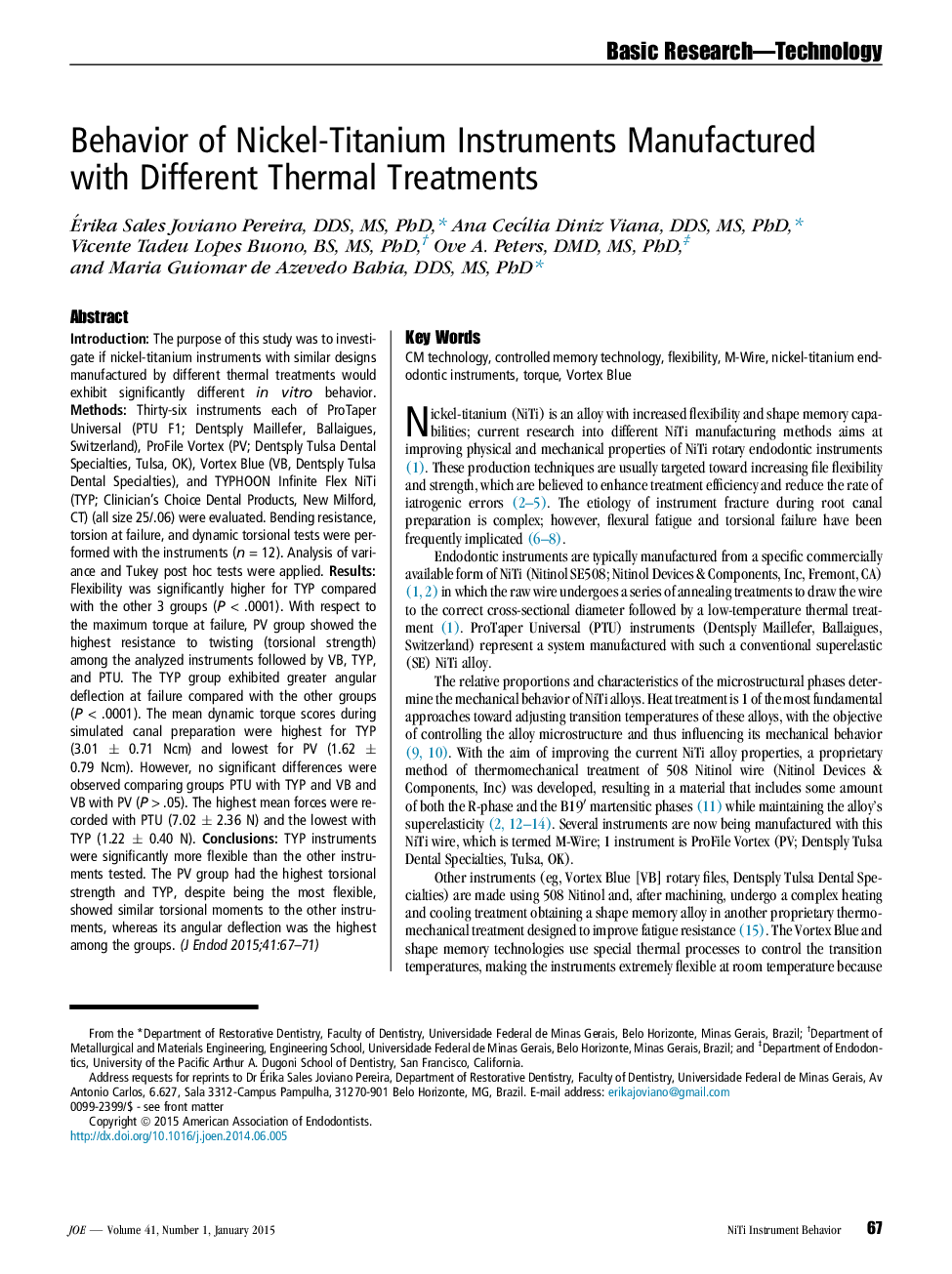| Article ID | Journal | Published Year | Pages | File Type |
|---|---|---|---|---|
| 3150326 | Journal of Endodontics | 2015 | 5 Pages |
IntroductionThe purpose of this study was to investigate if nickel-titanium instruments with similar designs manufactured by different thermal treatments would exhibit significantly different in vitro behavior.MethodsThirty-six instruments each of ProTaper Universal (PTU F1; Dentsply Maillefer, Ballaigues, Switzerland), ProFile Vortex (PV; Dentsply Tulsa Dental Specialties, Tulsa, OK), Vortex Blue (VB, Dentsply Tulsa Dental Specialties), and TYPHOON Infinite Flex NiTi (TYP; Clinician's Choice Dental Products, New Milford, CT) (all size 25/.06) were evaluated. Bending resistance, torsion at failure, and dynamic torsional tests were performed with the instruments (n = 12). Analysis of variance and Tukey post hoc tests were applied.ResultsFlexibility was significantly higher for TYP compared with the other 3 groups (P < .0001). With respect to the maximum torque at failure, PV group showed the highest resistance to twisting (torsional strength) among the analyzed instruments followed by VB, TYP, and PTU. The TYP group exhibited greater angular deflection at failure compared with the other groups (P < .0001). The mean dynamic torque scores during simulated canal preparation were highest for TYP (3.01 ± 0.71 Ncm) and lowest for PV (1.62 ± 0.79 Ncm). However, no significant differences were observed comparing groups PTU with TYP and VB and VB with PV (P > .05). The highest mean forces were recorded with PTU (7.02 ± 2.36 N) and the lowest with TYP (1.22 ± 0.40 N).ConclusionsTYP instruments were significantly more flexible than the other instruments tested. The PV group had the highest torsional strength and TYP, despite being the most flexible, showed similar torsional moments to the other instruments, whereas its angular deflection was the highest among the groups.
